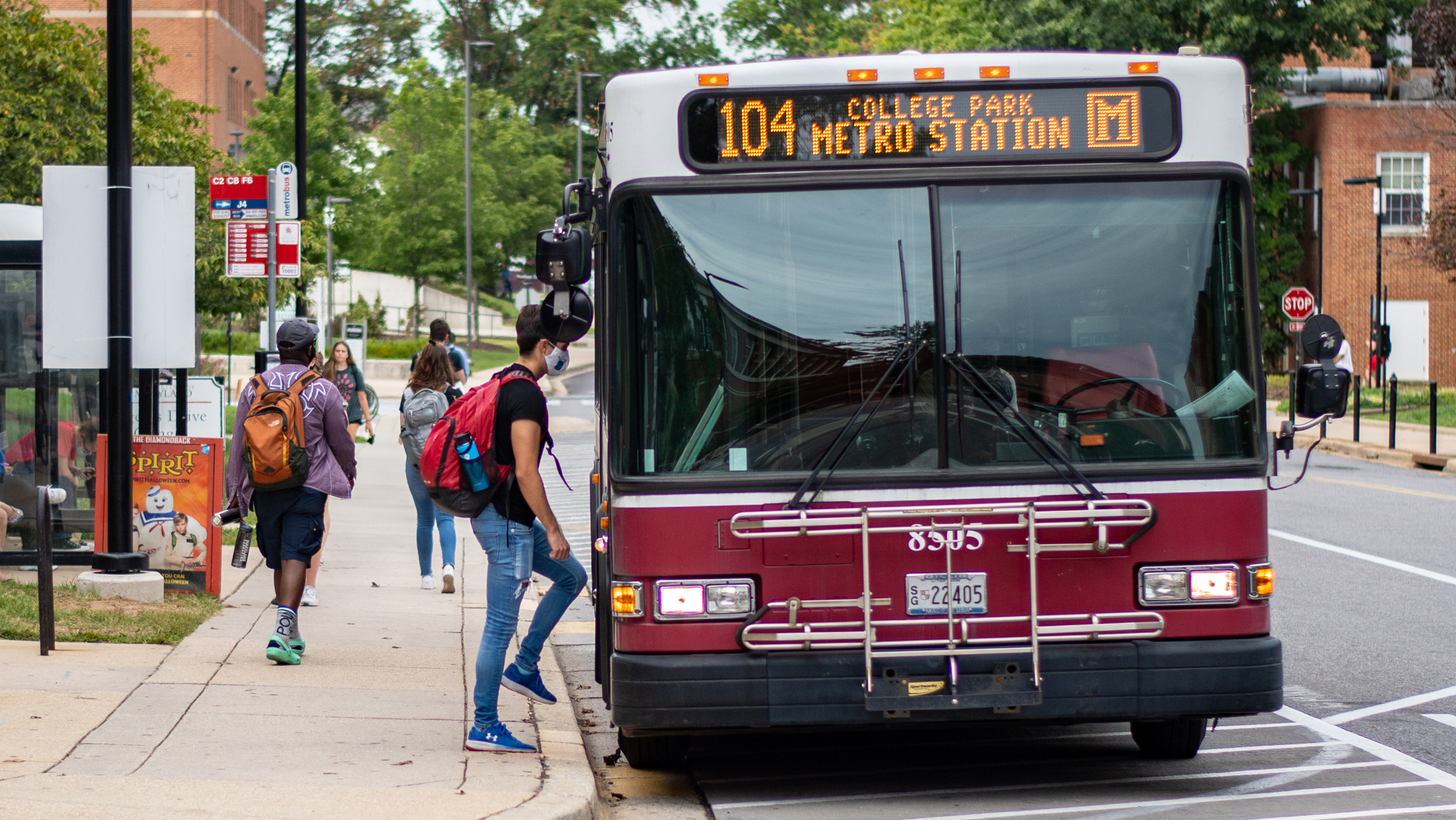By Hannah Ziegler and Victoria Stavish
Staff writers
The University of Maryland GSG passed legislation on shuttle accessibility, virtual teaching licenses for students in Iran and access to scholarly content during its meeting Friday.
The Graduate Student Government’s legislation focused on shuttle bus accessibility and called on the university administration and the Department of Transportation Services to address shuttle demand and overcrowding.
Nearing the end of the fall 2021 semester, community members have continued to face transportation issues, including inconsistent shuttle arrival times and a lack of buses. The problems began the first week of classes this semester, when the number of buses on the #141 Gaithersburg Park and Ride route was reduced, leaving many students stranded with no way to get to campus.
Gabrielle Wy, a criminology and criminal justice representative who takes the shuttle and often sees students “standing shoulder-to-shoulder, packing the bus,” authored the resolution.
DOTS attributed these issues to pandemic-related financial constraints. This resolution calls on the university to either change the funding model for DOTS or provide more funding without raising student fees, Wy said.
“There’s not really a clear-cut solution, but this just calls on DOTS and the university administration to prioritize these transportation issues because I think it can be an issue of safety,” Wy said.
[UMD GSG calls for standardized policies for required internships]
The GSG also passed a resolution supporting the university’s application for licenses to teach virtually in Iran.
This past summer, Iranian students at this university faced difficulties getting visas. Some students could not travel to the United States or attend their programs remotely, forcing them to defer their programs, said legislative affairs vice president Autumn Perkey.
The limited diplomatic relations between the U.S. and Iran complicate this issue, and the GSG faced confusion on whether the university wants GSG support on this issue, Perkey said.
“It’s been very ambiguous what [the university is] trying to get from us,” Perkey said. “We support the university if they decide to apply for this and we hope they do, but there are a lot of problems under the hood.”
The body also approved a resolution supporting the University of Maryland Publishing, Access and Contract Terms group’s push for more open access journals at this university.
There has been a new push to improve accessibility to scholarly research among students and faculty through publishing work in open access journals, said Lizzie Irlbacher, a government and politics representative and one of the authors of the resolution.
It’s expensive for this university’s libraries to buy journals and articles that are not open access, Irlbacher added.
“It really limits where scholarly articles can go and the exchange of knowledge,” Irlbacher said. “This is … for us to award professors and students for publishing and open access journals.”
GSG financial affairs vice president Annie Rappeport added the body consistently opposes the university libraries student fee. A switch to open access publications could be a way for the library to mitigate expenses and receive GSG support, Rappeport said.
The working group’s open access plan is currently under review, and the University Senate is set to consider the plan during this year’s legislative session.
[UMD SGA passes bill supporting plaque to honor Jordan McNair]
The GSG also heard updates on the new course evaluation system from this university’s assistant director for assessment, Alan Socha.
In spring 2022, CourseEvalUM will become Student Feedback on Course Experiences. The survey will consist of a new set of standardized course evaluation questions and responses.
The Office of Institutional Research, Planning and Assessment at this university piloted a version of this new course evaluation system in spring 2021 to gauge student approval for the changes.
In the pilot, IRPA utilized data from 146 course sections taught by 120 instructors. Student feedback on the new course evaluation format was mixed, Socha said. Overall, instructors said the new system provided more helpful feedback on classroom climate.
“Instructors feel that the [new] items are more specific and give better information,” Socha said.
Instructors also said evaluation questions were fairer and provided more effective feedback, he added.
IRPA plans to educate the campus community about the course evaluation changes and update the survey to include teaching assistant and department-specific feedback before officially launching the new system in spring 2022.



